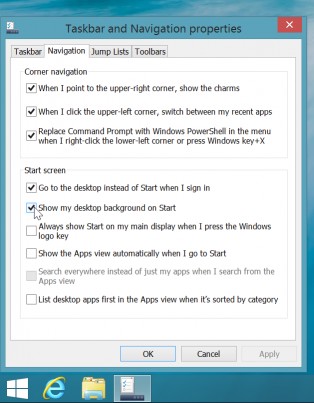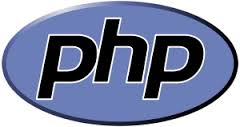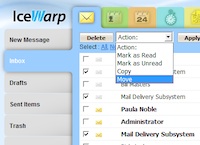Gifts & gizmos for the holidays. IT looks ahead to 2014. Google Voice for Your Chrome Browser . . .
News & Views
 Google Adds Voice To Chrome Browser
Google Adds Voice To Chrome Browser
If you thought that using Google Now voice commands was a smarty-pants way to talk to your smartphone only, Google just changed that. A new voice extension for Chrome browser lets you plug in a microphone and say “OK Google” or use the browser microphone button and ask away! It’s Hands-free with no typing. Simply say “Ok Google” and then ask your question. Here’s a fun you tube video that shows the way! GigaOM also has a good overview
[divider]
 IT Looks Ahead To 2014
IT Looks Ahead To 2014
As IT moves into the new year, it becomes increasingly clear that IT must continue to upgrade its business management profile. More than ever IT decisions affect not just the back room, but the up front profitability and cohesiveness of the corporate structure. Two interesting articles? Twelve Challenges Facing IT Professionals in 2014 by IT Business Edge and Four Ways IT Can Embrace Business Management by Information Week.
 MaskMe by Abine Safeguards Your Online Identity.
MaskMe by Abine Safeguards Your Online Identity.
During the holidays (and always), Abine promises you can browse and shop online without having to give out your real email address, phone number, or credit card number. Using AES-256 Encryption, when you enter private information like your phone number or email, it appears something like this {2cb-005-83cdk} and {80s-d8si-3jsld}. Cnet give it a big thumbs up. There’s a comprehensive overview here. The basic version is free, but you can choose to upgrade for $5 per month, which includes Masked Phones, Masked Credit Cards, and the mobile app for iPhone or Android.
[divider]
Holiday Quick Picks:
 Chromecast!
Chromecast!
A Great gift at a bargain price. Clever little dongle that controls streaming to your TV via your Android or iOS device, or through the Chrome Browser. Now with HBO GO. It connects through your TV HDMI port and you pull it up with the input button on your television remote, the same as you would a DVD player. A totally innovative little gizmo at $35.
 Roku
Roku
Nifty little streaming box in 3 versions, with Roku 3 for hidef being the one to beat. Tons of watching pleasure in a tiny box with speed to spare. Enjoy a wealth of channels from Netflix to Amazon, Smithsonian, National Geographic, PBS, and many,many more!
 The New Nexus 7
The New Nexus 7
Touted as a smoking little tablet with great features at a very affordable price. 1,920 x 1,200 IPS display, 2GB of RAM, a rear camera, a quad-core processor, wireless charging. Cost is a modest $229 for 16G. $269 for 32G. Unlocked!
 MotoG:
MotoG:
Praised as “an affordable phone, done right,” by Engadget, it’s priced at $179 unlocked! The MotoG comes with a 4.5-inch 720p display, and a comfortable curved back. Specs include a Qualcomm Snapdragon 400 quad-core 1.2GHz processor, 1GB RAM,a 2,070mAh battery, a front-facing cam and a 5mp camera. You can choose from a range of shell or flip covers. See the Engadget review here
 iPad Mini With Retina.
iPad Mini With Retina.
You get a gorgeous screen, the Apple ecosystem, and a great design; albeit at a price point that’s a little hard to take when compared to others with the same specs. Apple lovers, however, will probably go ahead and take the bite at close to $400 for a 16G model. PC Mag calls it “Beautifully built, fast . . . with a super sharp retina display that packs all of the power of the iPad Air into a more portable package.” See their review here.
 Xbox One
Xbox One
Touted as a command center for your living-family-gaming pleasure, it’s selling like hotcakes, with Kinect built in. Some say TV integration is frustrating and confusing. It’s also slightly pricier than PS4, but offers a ton of popular titles. Here is TechRadar’s take on the beast!
 Sony PS4
Sony PS4
Great graphics, controller and speed – lacking somewhat in available titles. Despite its smaller size than the Xbox One, Cnet says the PS4 “serves up dazzling graphics, runs on a simplified and logical interface, and boasts a fantastic controller. It’s also $100 cheaper than rival Xbox One and has the upper hand on indie and day one digital-only offerings.”


















 That means you have been or likely will be attacked – Really. Truly. No fooling. So what to do? One nifty program, MaskMe, is an easy to use browser add-on and mobile app designed to protect your email account, your phone number and your credit cards and your passwords. It acts as your personal, kung-fu bodyguard, so to speak.
That means you have been or likely will be attacked – Really. Truly. No fooling. So what to do? One nifty program, MaskMe, is an easy to use browser add-on and mobile app designed to protect your email account, your phone number and your credit cards and your passwords. It acts as your personal, kung-fu bodyguard, so to speak.  there’s room for improvement, what’s not to like about a little $35 thumb-drive sized USB streaming device that plugs into your HDMI TV and uses almost any of your devices as a remote control. For example: open your Netflix or the You Tube app on any device and stream away. The app doesn’t steam. It’s sends a signal to the ChromeCast device. It’s amazingly simple and easy to set up according to reviews. And did we say this innovative little streaming device is about as inexpensive as you can get?
there’s room for improvement, what’s not to like about a little $35 thumb-drive sized USB streaming device that plugs into your HDMI TV and uses almost any of your devices as a remote control. For example: open your Netflix or the You Tube app on any device and stream away. The app doesn’t steam. It’s sends a signal to the ChromeCast device. It’s amazingly simple and easy to set up according to reviews. And did we say this innovative little streaming device is about as inexpensive as you can get?  The new Nexus 7 was another show stopper. It sports the highest resolution to date of any tablet out there – a simply gorgeous screen. Apple, did you hear that?
The new Nexus 7 was another show stopper. It sports the highest resolution to date of any tablet out there – a simply gorgeous screen. Apple, did you hear that? 







 Devs: If You Don’t Play Nice, Google Will Brick Your Google Glasses.
Devs: If You Don’t Play Nice, Google Will Brick Your Google Glasses. Aw, Our Beloved Mouse Is Probably Going, Going, Gone!
Aw, Our Beloved Mouse Is Probably Going, Going, Gone!
 Hello! A Tablet That Can Call Home.
Hello! A Tablet That Can Call Home. Do Operating Systems Matter Anymore?
Do Operating Systems Matter Anymore? As of Now, Unlocking Your Cell Phone Is Illegal Without the Permission of the Carrier Who Locked It . . .
As of Now, Unlocking Your Cell Phone Is Illegal Without the Permission of the Carrier Who Locked It . . . Best Android Apps to Help Keep Your Smartphone Safe
Best Android Apps to Help Keep Your Smartphone Safe
 How to Secure Your Android Device
How to Secure Your Android Device